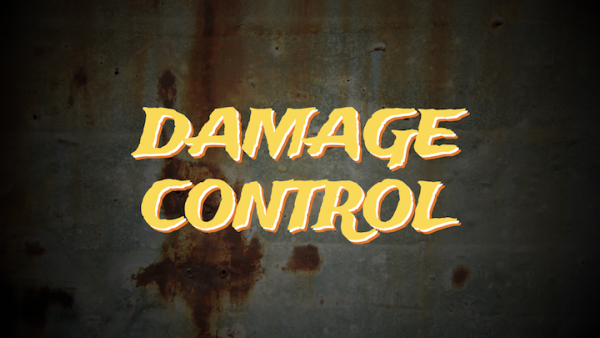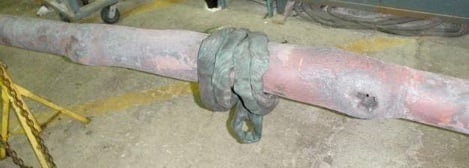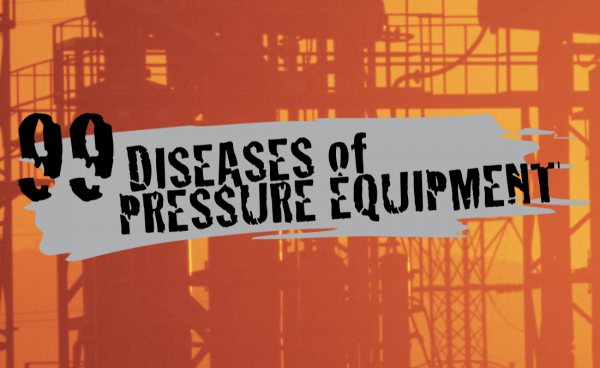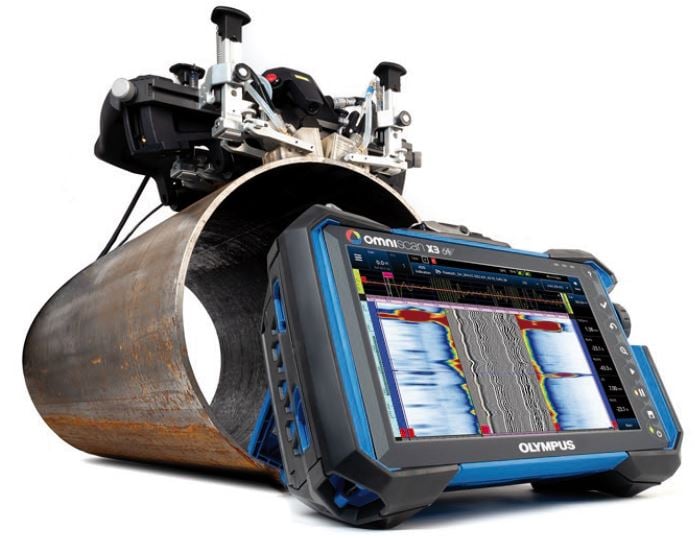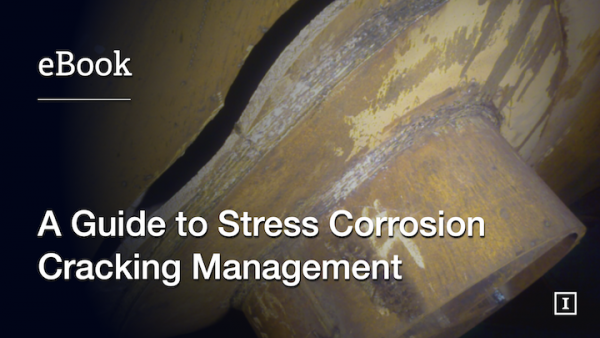Polythionic Acid Stress Corrosion Cracking (PASCC), sometimes referred to as polythionic acid cracking, is a form of intergranular stress corrosion cracking (SCC) that usually occurs in sensitized austenitic stainless steels and some nickel base alloys when sulfide scale on the steel surface is exposed to oxygen and moisture. The most common source of oxygen is the ingress of air when process equipment is opened for cleaning, inspection, or maintenance activities during a planned unit outage. Certain cleaning solutions may also contain oxygen. Additionally, liquid water is also commonly used during equipment shutdowns (e.g., water washing) and can be produced from condensing steam used for hydrocarbon removal. Local rainfall in humid environments may also introduce liquid water into equipment during shutdowns. Typically, PASCC occurs during equipment start-ups or shutdowns, and cracking can propagate rapidly through-wall in a matter of hours under the right conditions.
Areas Susceptible to PASCC
Equipment most susceptible to PASCC includes fired heaters burning oil, gas, coke and most other sources of fuel (containing sulfur), heater tubes, hot feed/effluent exchanger tubes, and bellows in hydroprocessing units. Crude distillation unit, vacuum distillation unit, and coker unit piping have also exhibited PASCC, and severe cases have been found in fluid catalytic cracking (FCC) units (e.g., air rings, plenums, slide valves, cyclone components, expansion joint bellows and piping).
PASCC Prevention/Mitigation
A common method for preventing PASCC is to do a soda acid wash of the equipment before or right after it is exposed to air and moisture. PASCC can also be prevented by removing oxygen from the environment by performing a dry nitrogen purge or removing moisture by performing a dry air purge. Alkaline washing may be performed as well to neutralize any polythionic acids that might form on the equipment. It’s also possible to prevent PASCC by constructing equipment out of corrosion resistant materials.
PASCC is covered in more detail in API RP 571, Damage Mechanisms Affecting Fixed Equipment in the Refining Industry. It includes a general description of the damage mechanism, susceptible materials of construction, critical factors, inspection method selection guidelines, and control factors. PASCC is also covered by NACE Standard RP0170-97, Protection of Austenitic Stainless Steels and Other Austenitic Alloys from Polythionic Acid Stress Corrosion Cracking During Shutdown of Refinery Equipment, which lists several methods for preventing or mitigating PASCC and details some of the reasons it occurs.
References
- Prueter, P., 2022, “Damage Control: Stress Corrosion Cracking Detection,” Inspectioneering Journal, 28(2), pp. 45-52.
Related Topics
- Amine Stress Corrosion Cracking
- Ammonia Stress Corrosion Cracking
- Carbonate Stress Corrosion Cracking
- Caustic Stress Corrosion Cracking
- Chloride Stress Corrosion Cracking
Relevant Links
Topic Tools
Share this Topic
Contribute to Definition
We welcome updates to this Integripedia definition from the Inspectioneering community. Click the link below to submit any recommended changes for Inspectioneering's team of editors to review.
Contribute to Definition


